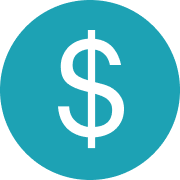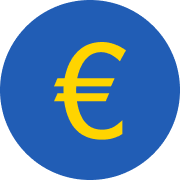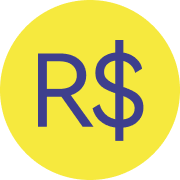
CARBON to DKK Converter and calculator


Conversion rates
Convert CARBON to DKK
Convert DKK to CARBON
CARBON to DKK chart
CARBON to DKK conversion data: Volatility and price changes of Carbon in DKK
| Last 24 hours | Last 7 days | Last 30 days | Last 90 days | |
|---|---|---|---|---|
High | 0.03579 DKK | 0.03997 DKK | 0.03997 DKK | 0.09986 DKK |
Low | 0.03347 DKK | 0.03287 DKK | 0.02759 DKK | 0.02257 DKK |
Average | 0 DKK | 0 DKK | 0 DKK | 0 DKK |
Volatility | % | % | % | % |
Change | -4.51% | -3.41% | +4.27% | -8.98% |
Carbon information
CARBON to DKK market statistics
Current CARBON to DKK exchange rate
Carbon to Danish Krone is falling this week.More info about Carbon on Bitget
Danish Krone information
About the Danish Krone (DKK)
What Is the Danish Krone (DKK)?
The Danish Krone (DKK), symbolized as "kr." and sometimes referred to as the Danish crown, is the official currency of Denmark, Greenland, and the Faroe Islands. Introduced on January 1, 1875, it replaced the rigsdaler and established Denmark on the gold standard. The ISO code for the Danish Krone is "DKK," and it is subdivided into 100 øre.
The Danish Krone (DKK) is issued by Danmarks Nationalbank, which is the central bank of Denmark. Established in 1818, Danmarks Nationalbank is responsible for the production and distribution of Danish currency and plays a key role in maintaining the stability of the krone, especially in relation to its pegging to the euro through the European Exchange Rate Mechanism (ERM II). The bank also oversees monetary policy in Denmark, aiming to ensure a stable financial system and prices.
What Is the History of DKK?
The Danish Krone has a rich history, with the earliest Danish coinage dating back to the 10th century. The modern-day krone was introduced in 1875 as part of the Scandinavian Monetary Union, which lasted until World War I. The krone was initially pegged to gold, but this standard was abandoned in 1931. During the 20th century, the krone underwent several devaluations, particularly in relation to the British pound and the US dollar.
Notes and Coins of DKK
Danish coins are distinctive, with different metal colors and sizes corresponding to their values. The current series of coins includes denominations from the 50 øre coin to the 20 krone coin. Danish banknotes have undergone several series, with the most recent being the 2009 series featuring Danish bridges and landscapes. A new series is scheduled for release in 2028-2029.
Why Is the Danish Krone a Stable Currency?
The Danish Krone's stability is largely attributed to Denmark's strategic approach to economic management. The currency is pegged to the Euro via the European Exchange Rate Mechanism II (ERM II), which ties its value to the Eurozone's economy. This pegging is maintained by Danmarks Nationalbank, the central bank of Denmark, through measured adjustments in interest rates and other monetary tools. The overall stability of the Danish economy, characterized by a high standard of living and a stable political climate, supports the Krone's steadiness. Contributing factors also include Denmark's consistent record of low inflation and the government's responsible fiscal policies, such as effective public debt management and maintaining balanced budgets. These elements, combined with international confidence in Denmark's financial system, help the Krone maintain its stability, even in the face of global economic fluctuations.
Why Does Denmark Not Use the Euro as Its Currency?
Denmark does not use the Euro primarily due to the decision made by its citizens in a referendum. In September 2000, a referendum was held in Denmark to decide whether the country should adopt the Euro as its official currency. The result was that 53.2% of the voters chose to keep the Danish Krone (DKK), while 46.8% voted in favor of adopting the Euro.
This choice was influenced by several factors, including a desire to maintain economic independence, allowing Denmark to tailor its monetary policy to national needs. Additionally, the Krone is seen by many as a symbol of national identity and sovereignty, and there was a general sentiment that adopting the Euro might diminish this aspect of Danish heritage. At the time of the referendum, Denmark's economy was strong and stable, leading many voters to question the necessity of changing the currency amidst the uncertainties surrounding the Euro. Furthermore, there was a degree of skepticism about the European Union and its future direction, with some preferring to keep a level of detachment from deeper EU integration. Despite this, Denmark has kept its currency closely aligned with the Eurozone through the European Exchange Rate Mechanism II (ERM II), ensuring currency stability while maintaining its monetary sovereignty.
Popular conversions










Hot promotions
How to convert CARBON to DKK



Buy
Sell
| Merchants (trades/completion rate) | Price | Amount/limit Low to high | Payment methods | Zero fees Action |
|---|
Popular Carbon Converter









Popular cryptocurrencies to DKK










CARBON to DKK Conversion tables
| Amount | 01:10 am today | 24 hours ago | 24h change |
|---|---|---|---|
| 0.5 CARBON | kr0.01674 | kr0.01754 | -4.51% |
| 1 CARBON | kr0.03349 | kr0.03507 | -4.51% |
| 5 CARBON | kr0.1674 | kr0.1754 | -4.51% |
| 10 CARBON | kr0.3349 | kr0.3507 | -4.51% |
| 50 CARBON | kr1.67 | kr1.75 | -4.51% |
| 100 CARBON | kr3.35 | kr3.51 | -4.51% |
| 500 CARBON | kr16.74 | kr17.54 | -4.51% |
| 1000 CARBON | kr33.49 | kr35.07 | -4.51% |
CARBON to DKK FAQ
What factors influence the conversion rate of CARBON to DKK?
Purchase other cryptocurrencies with similar market cap











Other crypto price predictions
 Bitcoin(BTC)Price predictions
Bitcoin(BTC)Price predictions Ethereum(ETH)Price predictions
Ethereum(ETH)Price predictions Celestia(TIA)Price predictions
Celestia(TIA)Price predictions Solana(SOL)Price predictions
Solana(SOL)Price predictions Worldcoin(WLD)Price predictions
Worldcoin(WLD)Price predictions Bittensor(TAO)Price predictions
Bittensor(TAO)Price predictions Dogecoin(DOGE)Price predictions
Dogecoin(DOGE)Price predictions PepeCoin(PEPECOIN)Price predictions
PepeCoin(PEPECOIN)Price predictions Pandora(PANDORA)Price predictions
Pandora(PANDORA)Price predictions ORDI(ORDI)Price predictions
ORDI(ORDI)Price predictionsDiscover more cryptocurrencies
Latest coin listings on Bitget











